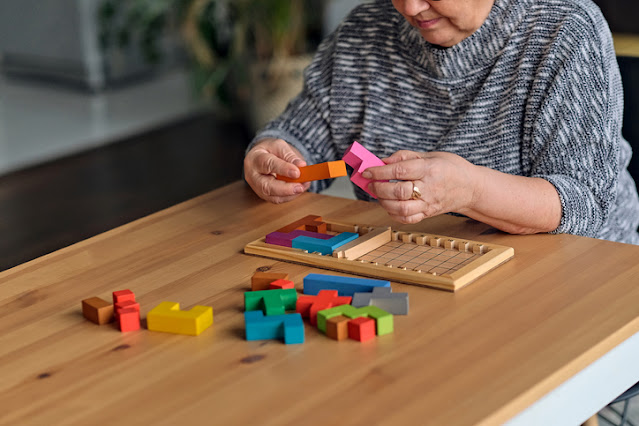Are you a senior citizen with a home that is becoming a burden? Are you struggling to keep up with the maintenance and cleaning, and feel the need for something smaller and more manageable? The time has come for you to move onto the next stage of your life, which could include independent living or assisted living. But which is best for you? Take our short online assessment and read on to learn more about the two senior lifestyle options available at UMC.
Assisted Living in New Jersey
Do you want to live independently but need assistance with some self-care tasks such as taking medications and daily housekeeping, otherwise known as activities of daily living (ADLs)? If your answer is yes, Assisted Living may be your top consideration. You stay in your own apartment or condominium, but have 24/7 access to the care you need, while participating in the many social activities offered in the senior living community. Assisted living is highly recommended if you or a loved one are showing early signs of dementia, but are not ready for memory care.
Your levels of care are based on your medical assessments and the type of medical assistance and ADL you need. If you are concerned about costs, as so many potential residents and their families are, we might have an answer to your questions on our Assisted Living Costs page.
Independent Living in New Jersey
Independent Living is also called a Continuing Care Retirement Community (CCRC). You have your own apartment, condominium, townhouse or cottage where you can live independently, surrounded by people in the same age group. You have access to various amenities, restaurants or dining areas, security, 24/7 staff, and many social activities. The benefit of independent living is that you are in a community where you can eventually transition to assisted living and nursing home care, without losing the relationships you built or changing your address.
Is cost a key factor for you? NJ State certified CCRCs offer flexible financial options, including programs allowing for a refundable equity payment and a lifetime care guarantee. We offer such a program at UMC at Bristol Glen, our independent living community in Newton, New Jersey.
What are some of the questions you should ask before choosing an independent living community or CCRC?
- What amenities and services are covered in the monthly fee?
- How do you help residents maintain their independence?
- How do you measure the satisfaction of your residents?
Differences Between AL & IL
Assisted Living and Independent Living might seem similar, but there are significant differences.
| Assisted Living (AL) | Independent Living (IL) | |
| Assistance with activities of daily living (ADLs) | Available day or night | Not available |
| Medication management | Provided at no additional cost | May or may not be available |
| Availability of medical personnel | Permanent availability of medical staff on-site or on-call day and night | May or may not be available |
| Caregiving services | Caregivers are available full time | Can be arranged at an additional cost |
| Housekeeping services | Generally included at no additional cost | Weekly services may be available at an additional cost |
Signs To Look For
The National Institute on Aging (NIA) offers several suggestions for healthy aging, including getting enough sleep, doing regular exercise and eating healthy. Many older adults, however, need assistance to live a quality life. What are the signs to look for that should motivate you to move into Assisted Living?
- You have a chronic medical condition and cannot manage it on your own.
- Bills are not being managed or paid in a timely manner, putting you at risk of being scammed.
- You are isolating yourself and not visiting family or practicing your hobbies like before.
- You are not cooking for yourself anymore, and the house is becoming too difficult to keep up with.
- You don’t have the same motivation, or need help getting yourself ready for the day.
If you would like more information about Independent Living and Assisted Living at our United Methodist Communities in NJ, please contact our team for a personal tour or take the time to visit our website at: https://umcommunities.org/
This blog was originally published at https://umcommunities.org/umc-corp/blog/senior-citizen/













